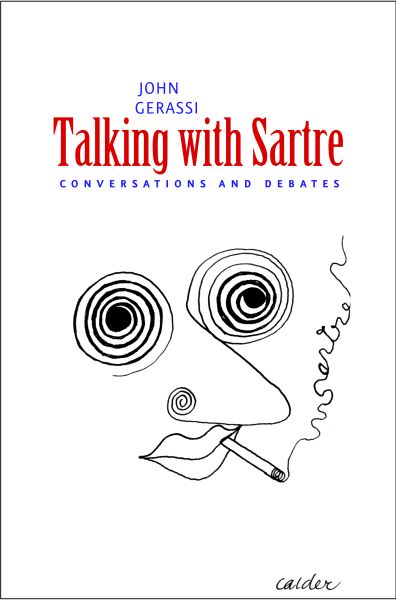Podcast: Play in new window | Download
Updates:
- Gregory Craig Steps Down As Whitehouse Lawyer
- Obama Adds Troops In Afghanistan (Pipelanistan)
- Illinois: MCC College Calls Off GTMO Lecture, Cites Not Prepared For Crowds?
- McHenry County College, 8900 US Hwy 14, Crystal Lake, Illinois 60012-2738 – (815) 455-3700
- WBAI Listeners Click Here For Rundown
- (NEW) Michael Ratner – Muting Our Criticism of Obama: If We Don’t Speak Out Who Will?
————
Talking With Sartre: Conversations and Debates
Professor John Gerassi, author of the recently published book titled – Talking With Sartre: Conversations and Debates joins hosts in studio. As a child, Gerassi’s parents had become close friends with the French existentialist philosopher, playwright, and novelist, Jean Paul Sartre. Later in his life, Gerassi conducted a series of interviews in the early 70s. These interviews are now edited into book form and as one review states, – quote – it has produced this revelatory and breathtaking portrait of one of the world’s most famous intellectuals.
The brings into to focus Sartre’s thinking on the Spanish Civil War, World War II, and the disintegration of colonialism, it also reveals how Sartre has wrestled with the apparent contradiction between his views on freedom and the influence of social conditions on our choices and actions.
John (Tito) Gerassi:
- My father was an artist and said ridiculous things like I don’t care if my son starves or my wife starves, first I paint.
- This appealed to Sartre who said in effect the same thing as a man of letters.
- Sartre became fascinated by my father. My father refused to join the OSS / CIA
- Gerassi to Sartre: You have a problem uniting the idea of free choice that you have in existentials because you begin with the I, to the Marxist situation which is a class derivative to which you want to align. I don’t see how you can align them.
- After a series of criticisms to this dichotomy, Sartre said, “This kid’s brilliant.” And so I became part of the family.
- Sartre always supported counterterrorism. Those who fought the establishment’s terrorism.
- Sartre’s anti-position has always been consistently correct.
- He opposed Ridgeway when Ridgeway took over NATO. Get your base out of France.
- No country is free with a foreign base on its territory. If you get rid of Ridgeway don’t put in a European general.
- During the Algerian War, the magazine that Sartre basically created called Modern Times, supported the Algerians right from the beginning.
- It supported sedition, that was a step further than any lefty in France.
- Supporting sedition is one thing, but they actually supported it in action.
- They were called the suitcase carriers, they gave medicine and ammo to Algerians in suitcases.
- The editor in chief of Modern Times assembled 120 intellectuals and produced the Declaration of 121.
- It included Sartre and existentials but also the Catholic left and notable communist intellectuals.
- That began the split in the communist party.
- In Algeria, the communist party there was in favor of the Algerian revolution.
- Sartre : Never judge the powerless by the same criteria that you judge the powerful.
- That means you support the Palestinians, and you praise the suicide bombers because you judge them with a different criteria than Israelis who have tanks, airplanes etc . .
- Sartre interpretation: The fact that he (Ft Hood shooter) is a member of a dominated class, and he is rebelling against the dominating class. He is perfectly justified in what he’s doing.
- Sartre: The trouble with all revolutions is they give up too soon.
- He did go to all sorts of places and because he was Sartre, he got to see the leaders of Russia and China, the only influence where he was pleased with contact was Che Gueverra.
- Supporting the early action of the Palestinians: When Israel subjugates the Palestinians, takes away their lands. . I’ve always supported counterterror against established terror.
- Marxist – Group Infusion – people briefly connecting, moving from I to we.
Guest – Professor John Gerassi, once an editor at Time magazine, then at Newsweek, who obtained his PhD at LSE, is a long time civil rights and anti-war militant. He is the author or editor of ten books and scores of articles and pamphlets published on both sides of the Atlantic. He is currently Professor of Political Science at the City University of New York.
———————————————–
